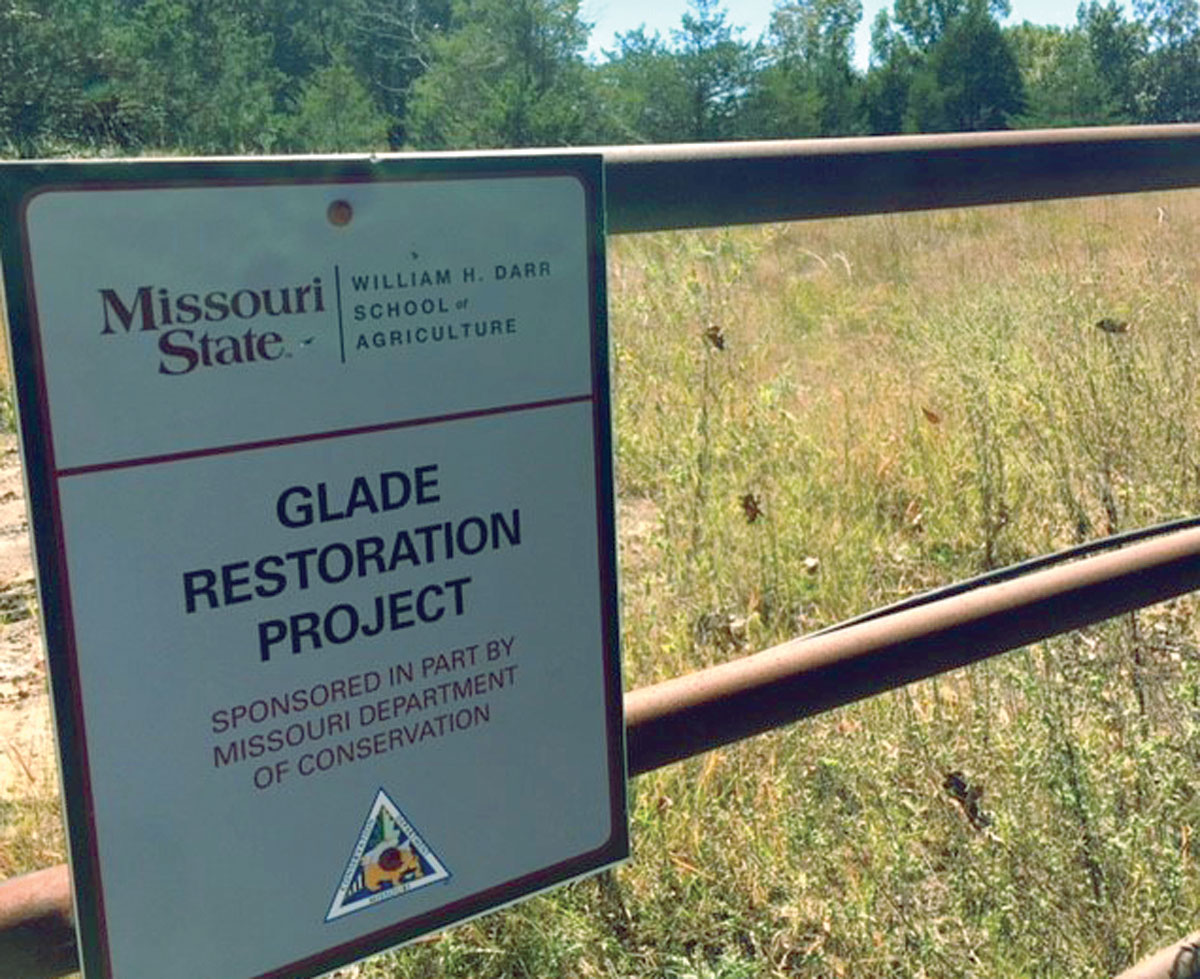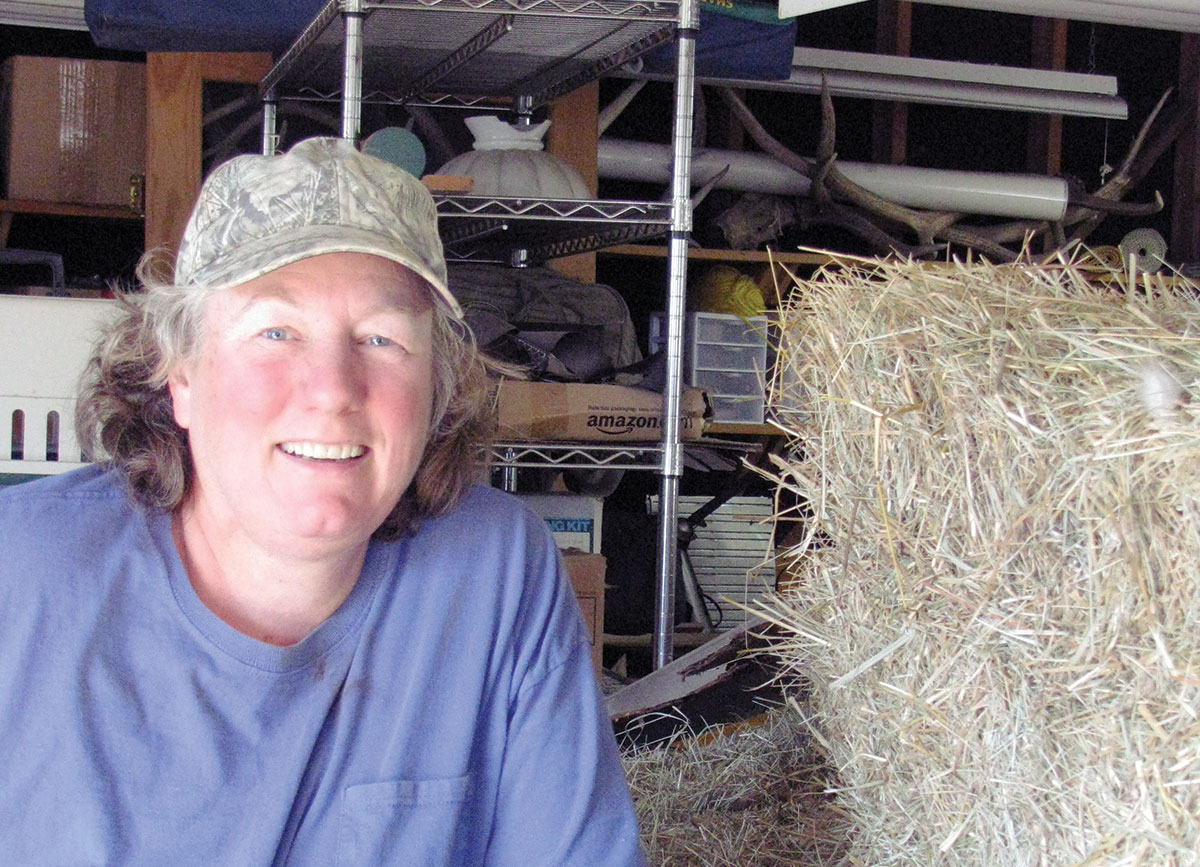
Humansville, Mo., producer is working to advance his beef program, herd and pastures
HUMANSVILLE, MO. – Growing up in a Texas oil town, Freddie John Wieder III was a baseball standout, playing on numerous traveling teams.
When Freddie and his father, John Wieder Jr., moved from Port Arthur, Texas, in 2014 to a farm near Humansville, Mo., the younger Wieder continued his baseball career, and began to find a new way of life in his new hometown.
“Back in Texas, my father and his father, Freddie Sr., ran the Wieder Tree Farm, which had pine trees. When I was in sixth or seventh grade, I thought it would be neat to have a farm and not have to go anywhere. When we moved here, I started taking ag classes and learning about agriculture, and I tried to take in all the different knowledge.”
“When we started the farm, we had two cows, then went to four, then six, and grew from there,” Freddie said, adding that he and his dad spent countless hours removing locust trees from the farm’s pastures. “It was a slow climb.”
While in high school, Freddie found his passion for the cattle industry when he showed a steer.
“We called him Black Star,” Freddie recalled. “He was a good old, 2,000-pound show steer. I got reserve grand champion at the Polk County Fair in 2015.”
Today, Freddie and his family have a mixed commercial herd.
“We’ve had a little of everything,” Freddie explained. “Guernsey, Charolais, just everything. We don’t discriminate a breed. If we see a good cow, we will get them. Some cows are smaller in the torso, shorter in the legs, but if they are longer in the torso, have longer legs, and will grow, we will look at them.
“We also want a female with enough weight to have a calf safely. I would rather have them have the best chance to not have problems and a live calf.”
The family retains some heifers, but Freddie said they find it easier to buy bred heifers as replacements.
“We keep our cows until they are about 5 years old, then we start looking for replacements,” Freddie said. “We like to buy those bred females, which are usually yearlings or 2-year-olds because we want them to stay in the herd a while. Last year, we bought some cheaper, older cows, and we just had too many problems.”
Females, at this time, are bred by an Angus-cross bull born on the farm.

In addition to a commercial cow herd, Freddie has begun marketing Freddie Wieder Farms Next Gen LLC-branded beef.
“My dad was the first generation,” Freddie said. “He was always selling beef to people.”
The Wieders primarily offer halves and wholes to customers but also have some USDA-inspected cuts, which allows them to ship around the country. Steers are not processed until there is an order for beef.
Inspection requirements dictate where the animal is processed.
Most marketing for the family’s beef is done through word of mouth and social media platforms.
“It’s all organic and is growing organically,” Freddie said. “We must be doing something right because we have sold 10 just over the summer.”
In addition to raising calves for a beef program, the family, including Freddie’s wife Angelina and young son Nathanial, buys larger steers to finish. Steers are about 18 to 24 months of age at processing.
“The maximum we will go is 24 months, and we want them to be at least 1,000 pounds,” Freddie said, adding that heavier animals require fewer inputs and less time to finish out. “We want to stay all natural. We keep everything on grass and do not finish steers on grain.”
Some customers do ask for specific breeds when buying beef.
“If they want a big black Angus or something else black, we will do it for them,” Freddie said. “I personally don’t see big differences in them; we feed and care for them all the same. Sure, you can sell Angus, but you can get great quality beef from a Jersey, a Guernsey, a Hereford or even a Longhorn.”
With a degree in business administration, Freddie said he has enjoyed analyzing the demand for high-quality, farm-raised beef and being able to supply that product.
“Beef prices are going up,” he explained. “People don’t want to buy from Walmart, Aldi, or other bigger stores because they will take a 6- or 7-year-old heifer, turn her into ground beef, and sell it. When you buy here, you are getting a high-quality animal.”
That business side also comes into play when Freddie looks to the future.
“I’m always looking for that feedback on what we can do to grow or be better,” he explained. “One of the things my (baseball) coach taught me in college was to always have a growth mindset, always look for ways to improve and be better.”
Freddie has attended a grazing school and is working with the NRCS to build a managed grazing system. He is installing waterlines and has solar panels to pump water sustainably across the farm and power the family home.
The Wieders currently utilize about 25 to 30 acres for their grazing program, with plans to add 25 additional acres after clearing timber. Cattle are moved through a paddock system, grazing each area for about five days before being rotated.
Over the winter, Freddie incorporated winter rye grass to help improve forages, which also includes clovers, fescue, lespedeza, large and small crabgrass, and Bermuda.

“We are doing everything for our cows to keep them going,” Freddie said. “Rotational grazing allows us to use the maximum amount of forage every time. We leave about 4 inches in the field, and then they go to the next one. Once they leave that field, it’s at least 45 days before they come back. Eventually, we would like to eradicate all weeds from the pastures, but we don’t want to use any pesticides. We want to keep all our fields as natural as possible and only seed them.”
The grazing system, quietly walking among the animals and not using a UTV, creates a docile herd.
“It’s how we control our cattle; they aren’t wild. This cow was pretty rough when we got her, and after she had her calf, I couldn’t even be in the same field with her,” Freddie said pointing to a nearby grazing cow. “Now, she is one of our better cows. If we have a cow lost in the trees, I will find them. It might be a 3- or 4-mile walk or run, but I’m out there with them.”
If the herd requires additional forages, hay is purchased locally, but Freddie said they have little need for hay unless there is a heavy snow.
The Wieders vaccinate against blackleg and respiratory issues. “If we get one cow what gets blackleg, we can lose our entire herd,” Freddie said.
While Freddie Wieder Farms Next Gen is grass-based, cattle receive some grain.
“It’s very little,” Freddie explained. “It’s more like a control factor and not beefing them up.”
In extreme winter weather, some feed is offered in addition to minerals to give cattle extra calories and energy to fight the cold.
Eventually, Freddie would like to add more Angus/Simmental genetics to the herd one day.
“As of right now, being a smaller business and farm, you have to use your resources,” Freddie said. “You have to maximize profits and cut down where you can. Our goal is to be self-sustainable.”
There are also a few other irons in the fire for Freddie and his family. Freddie showed rabbits when he was younger and has recently returned to the rabbit business with White California rabbits, which will be used to produce both breeding stock and meat rabbits. He also teaches science at the Humansville Middle School and is a cross-country and track coach. Freddie said his teaching schedule at his alma mater allows him to spend time with his family and herd, and he is looking forward to watching both grow.
“I think it’s wonderful to be able to raise my son here,” Freddie said. “He is going to have all of this space to run around and enjoy what nature is like. I think the air is much fresher here. We finally got our farm; now the goal is to keep getting better.”







